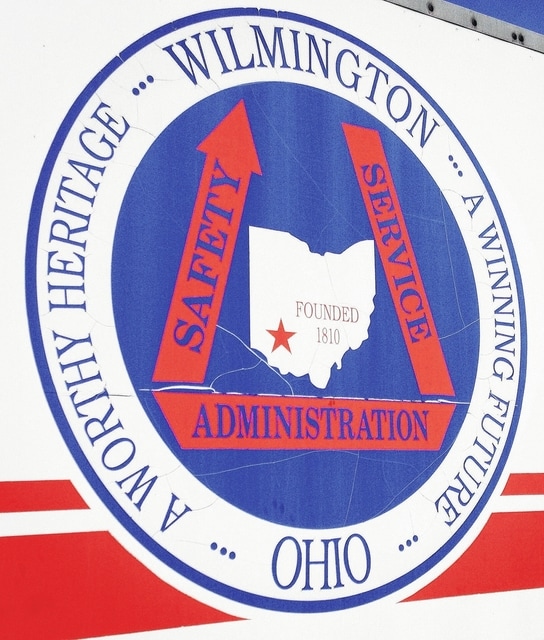
WILMINGTON — City officials are considering how to staff the fire department to combat rising overtime costs and improve safety.
Wilmington Fire Chief Andy Mason told Wilmington Council’s safety committee Tuesday that the amount of overtime paid so far this year, about $81,000, is “embarrassing.”
Council member Joe Spicer said one firefighter alone has more than 500 hours of overtime.
“Bless his heart that he responds,” Spicer said. “My concern is that we have very few of them respond (to calls when needed). A lot of them don’t even live around here so they can’t normally respond to a fire. It kind of worries me as a citizen.”
Spicer also said he is concerned that firefighters working too much overtime might get exhausted and leave.
Mason, Mayor Randy Riley and the safety committee, comprised of Spicer, Mark McKay and Rob Jaehnig, its chair, explored the idea of hiring part-time firefighters, which are considerably cheaper.
Recently, two full-time firefighters left the department and one was sworn in. To date, the department employs 14 full-time firefighters, no part-time officers and is looking to hire one more full-time firefighter.
A city ordinance prevents city from hiring more than 15 full-time firefighters or more than 23 part-time or intermittent firefighters.
The issue also touches on safety for firefighters and the city at large.
Spicer said his biggest concern is “if you have a major incident where you need a bunch of people.”
Additional firefighters, even part-time ones, would be able to respond then.
The National Fire Protection Association recommends having six people on a fire engine when it moves, but the fire department doesn’t have that many.
Riley told the Wilmington News Journal the city tries to meet NFPA’s recommendations, but can’t meet all of them. Not meeting those recommendations could endanger firefighters.
Wilmington Police Chief Duane Weyand said his officers have been driving paramedic squads “because they only have one member to be in the back of the squad, (so) the police officer drives the squad to CMH.”
“When you take a minimum staffed department such as us and you lose two guys, it hurts,” Mason said, adding that double and triple runs do occur, incurring overtime costs.
Mason said it is hard to predict how hiring part-time officer could save money because it’s difficult to estimate number of fires and how much overtime would be needed. He did say more people would be available in case of a fire and coverage would improve.
The committee didn’t craft a formal recommendation for council, according to Riley, but is looking at what the city’s staffing requirements are, what the National Fire Protection Association’s standards are, whether part-time firefighters could aid in those shifts and what benefits, if any, would need to be paid for those part-time firefighters.
Mason told the safety committee a part-time firefighter would cost the city $21,900, plus personnel costs like worker’s compensation insurance. A full-time firefighter would cost between $60,000 and $70,000, he estimated.
Riley said benefits makes up about a third of a typical city employee’s compensation.
Jaehnig said he wanted to find “the appropriate mix” of full-time and part-time firefighters, stressing that he doesn’t want to fire full-time firefighters but would consider eliminating positions as firefighters retire.
He said the ordinance preventing the city from hiring more firefighters could be changed, if needed.
The committee discussed costs and the city’s depressed revenues since the closure of DHL.
According to Wilmington Auditor David Hollingsworth, the city’s revenue peaked in 2009 at $7 million. In 2010 and ever since, it’s been relatively flat at $4.1 million.
“We have to start thinking about different ways of doing this,” Jaehnig said, urging a realistic approach. “If the community says that’s all the money you’re getting, then fine – these are all the services we can provide.”
Riley said the fire department takes in revenue from Union, Adams and Washington townships, through contracts for services, and from billing for Emergency Medical Services. He suggested the city could look into increasing those revenue streams but said cost cutting wouldn’t be an option.
“I have looked at ways at cutting their staffing and cutting their responsibilities, even doing away with EMS completely,” Riley said. “It ain’t going to work, and it just wouldn’t be good for the city.”
The committee also discussed the residency of its firefighters.
Riley said the Ohio Supreme Court ruled that cities can’t have residency requirements.
“Literally, there are no residency requirements,” Riley said. “We have a firefighter living in Columbus. He drives an hour every shift to be at work, but he’s not able to come here for a squad run because by the time he gets here and gets back, the squad run’s over.
“And as much as I hate that, there’s nothing we can do about it,” Riley said. “We cannot do something the Ohio Supreme Court says we cannot do.”
Reach Nathan Kraatz at 937-382-2574, ext. 2510 or on Twitter @NathanKraatz.


